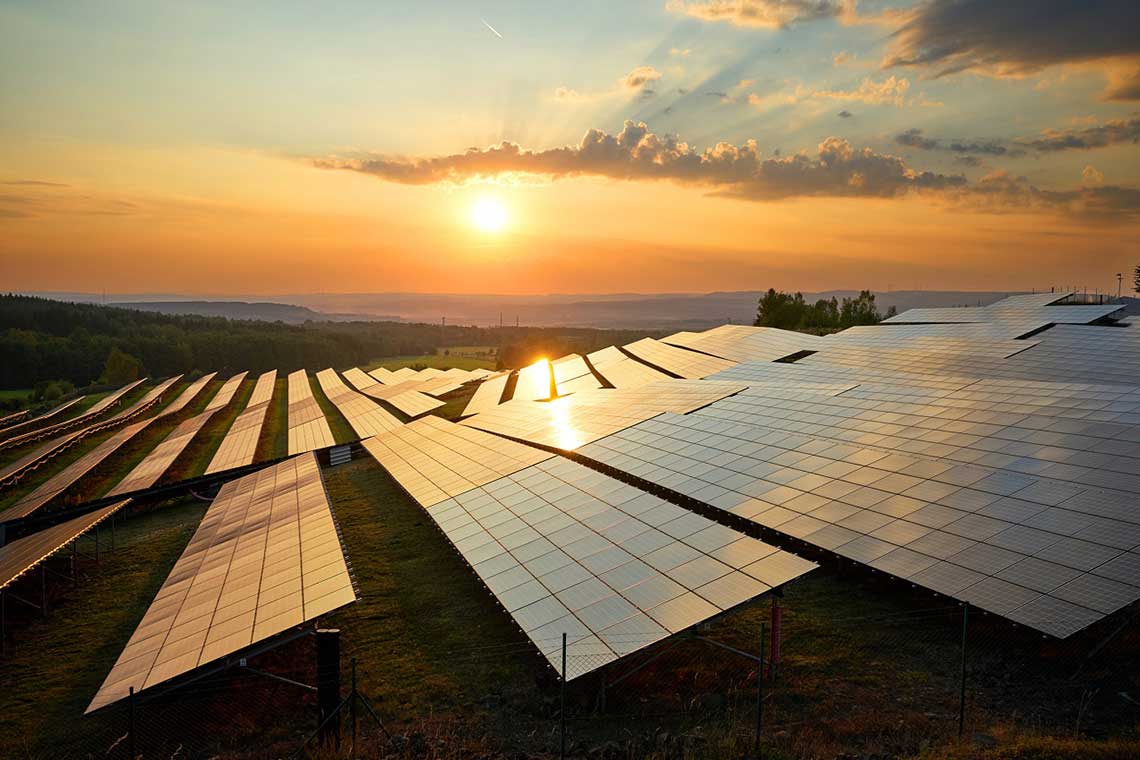
Image: Getty Images.
The Public Accounts Committee (PAC) has outlined its reservations as to whether the UK will be able to achieve its generation targets for solar, wind and nuclear.
According to the newly released 'Decarbonising the power sector' report out today (21 June), the PAC has found that “while the government has many separate ongoing power decarbonisation plans, its ambitions are jeopardised by the lack of an integrated and coherent delivery plan”.
Because of this uncertainty and lack of transparency, the report said that a delivery plan should be “pulled together by Autumn 2023 at the latest”.
The PAC unveiled a number of key conclusions from its inquiry whilst also citing that up to £400 billion of public and private investment in new generating capacity will be needed by 2037 to attain decarbonisation goals and upscale the necessary capacity required to achieve this.
According to the report, there is a lack of an overarching delivery plan for delivering various targets which thus is jeopardising the government’s ambition to decarbonise the power sector by 2035. For this, the Department should pull together a delivery plan to help demonstrate a clear path towards achieving the decarbonisation of the power sector.
This could be pivotal for several reasons. It can allow the power industry to prepare for the required uptake with actual goals to work towards whilst a delivery plan could additionally spark increase investment within the sector with increasing confidence and transparency.
Alongside this, the PAC also declared that it was sceptical over the plans for expanding nuclear, solar and wind power and whether they are credible. The UK Government has set itself highly challenging electricity generating capacity ambitions for nuclear (24GW by 2050), solar (70GW by 2035) and offshore wind power (50GW by 2030). By comparison, the UK’s current operating capacity is less than a quarter of each of these ambitions.
This will require a radical scaling up of each technology to even come close to the government’s targets. To help solve this however, the PAC has proposed that the government provides annual updates to Parliament that demonstrate progress against milestones towards the objectives. This then can be used to help inform he industry and identify how risks can be mitigated.
The report also takes aim at the government’s work in attracting investment into the renewable sector. It read that “we are not convinced that government is providing enough clarity to the private sector to attract the investment that is necessary to build infrastructure, spur innovation and drive competition to lower costs”.
Other conclusions also focus on consumers. Firstly, the report outlines that the department has not yet set out how it expects decarbonising the power sector will impact energy bill payers and taxpayers as well as not being clear on the Department’s plans for energy efficiency and consumer behaviour.
“What is the plan? It has now long been understood and accepted that greening our economy is an existential priority, with the government setting itself the target of securing an entirely low-carbon power supply by 2035. But without a coherent delivery plan to get there, the government will find it harder to know what decisions it must take, and when, to ensure that it can realistically reach its ambitions,” said Dame Meg Hillier MP, chair of the committee.
“There are just twelve years left for the government to meet its low carbon energy target, and much still to do if this is to be achieved – and at a cost the taxpayers and bill payers can bear while ensuring the lights stay on.
“There is an information vacuum in key areas – energy efficiency, investment, the cost of the transition to the public – that must be addressed. We need an overarching plan charting the way, to provide much-needed confidence to the businesses and consumers who are needed to deliver it. When it comes to tackling the climate crisis, we can see around us, we are already living on borrowed time.”
Just last week Current± reported on another report from the PAC which stated that approximately 1.7 million people were left waiting for months to receive help with their energy bills due to a “lack of bandwidth” from the government.
Taking aim at the government, the Public Accounts Committee, a select committee of the British House of Commons, stated that it took too long to get support to some of the UK’s most vulnerable households.
This article first appeared in Solar Power Portal's sister publication Current±.

